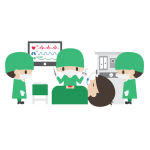Drug addiction is a serious problem that affects millions of people worldwide. It is a chronic, relapsing brain disease that can cause significant physical and mental health problems, social and family issues, and financial difficulties. Fortunately, drug rehab or drug rehabilitation is available to help individuals overcome their addiction and get their lives back on track. In this post, we’ll explore what drug rehab is, the types of drug rehab programs available, and the benefits of seeking treatment.
What is Drug Rehab?
Drug rehab is a program designed to help individuals who are struggling with drug addiction overcome their addiction and achieve lasting recovery. The goal of drug rehab is to provide a safe and supportive environment where individuals can receive evidence-based treatments, therapies, and support that can help them learn how to manage their addiction, prevent relapse, and rebuild their lives.

Types of Drug Rehab Programs
There are several types of drug rehab programs available, and the most appropriate program for an individual depends on the severity of their addiction, the type of drug they’re addicted to, and their personal circumstances. Here are some of the most common types of drug rehab programs:
1. Inpatient or Residential Treatment
Inpatient or residential treatment is a type of drug rehab program where individuals live in a facility for a specified period of time and receive 24-hour care and support. Inpatient treatment is best for individuals with severe addiction or co-occurring mental health disorders.
2. Outpatient Treatment
Outpatient treatment is a type of drug rehab program where individuals attend treatment sessions during the day and return home in the evening. Outpatient treatment is best for individuals with mild to moderate addiction who have a stable living environment and supportive family and friends.
3. Medication-Assisted Treatment
Medication-assisted treatment is a type of drug rehab program that uses medications to help individuals manage their withdrawal symptoms and cravings. Medication-assisted treatment is best for individuals with opioid or alcohol addiction.
4. Dual Diagnosis Treatment
Dual diagnosis treatment is a type of drug rehab program that addresses both addiction and co-occurring mental health disorders, such as depression or anxiety. Dual diagnosis treatment is best for individuals with addiction and a mental health disorder.
Benefits of Seeking Drug Rehab
Seeking drug rehab can provide many benefits for individuals struggling with addiction. Here are some of the most significant benefits of seeking drug rehab:
- Professional support: Drug rehab provides professional support from trained and experienced addiction specialists who can offer guidance, support, and expertise in helping individuals overcome addiction.
- Safe and supportive environment: Rehab centers provide a safe and supportive environment where individuals can focus on recovery without distractions or negative influences.
- Comprehensive treatment: Drug rehab programs offer comprehensive treatment, including detoxification, therapy, counseling, and medication-assisted treatment, which can address all aspects of addiction and improve the chances of successful recovery.
- Life skills training: Rehab programs often include life skills training, which can help individuals develop healthy coping mechanisms and life skills that support long-term recovery.
- Peer support: Drug rehab provides an opportunity to connect with other individuals who are also in recovery, offering a sense of community and peer support that can be essential in maintaining sobriety.
- Improved physical and mental health: Drug rehab can improve physical and mental health, reducing the risk of health complications and improving overall well-being.
- Improved relationships: Addiction can strain relationships with family and friends, but rehab can help repair and rebuild those relationships by improving communication, trust, and understanding.
10 Best Drug Rehab Centers in the US
Below are the best drug rehab centers in the United States. We have provided links to all these rehab centers in their description. We hope that you find this list useful.
1. The Betty Ford Center – Rancho Mirage, California
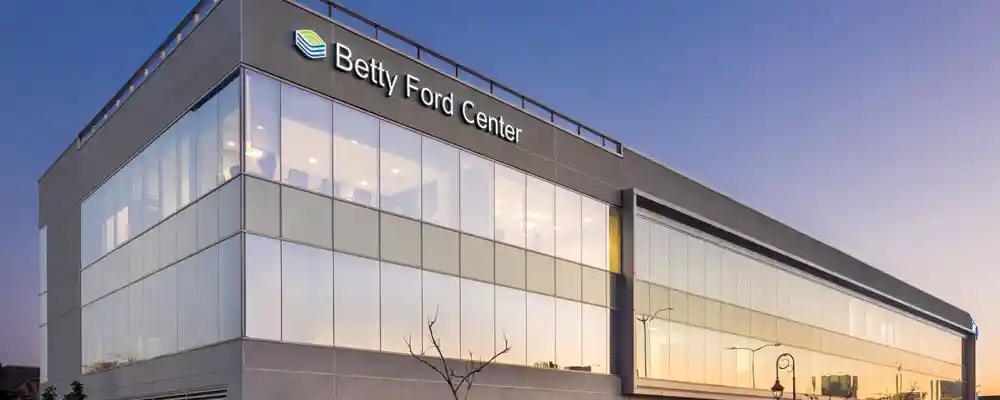
The Betty Ford Center is one of the most well-known rehab centers in the United States. It offers a range of programs, including inpatient treatment, outpatient treatment, and detoxification services. The center has a highly experienced staff of medical professionals and therapists who specialize in addiction treatment.
2. Hazelden Betty Ford Foundation – Minnesota, Oregon, and New York
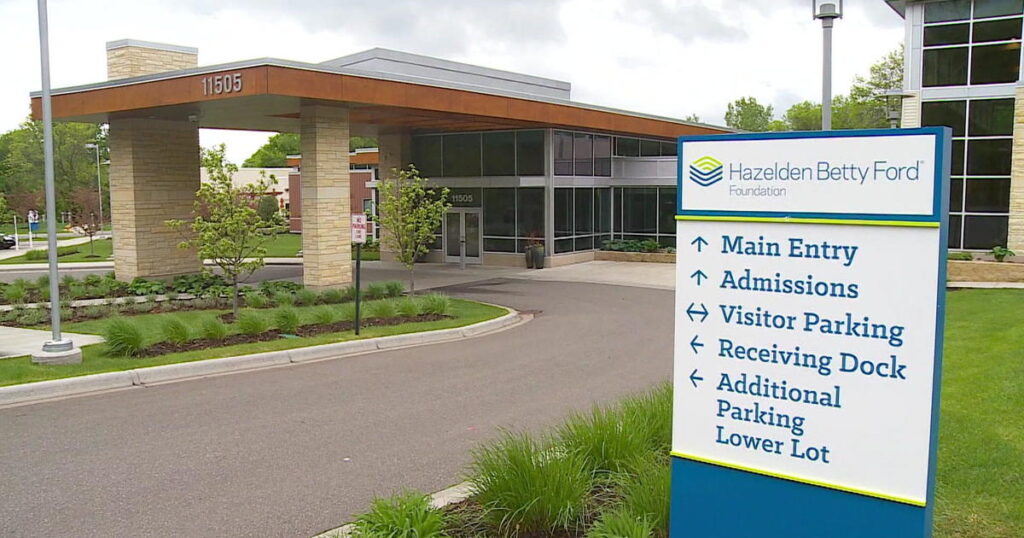
Another highly respected rehab center in the United States is the Hazelden Betty Ford Foundation. With locations in several states, including Minnesota, Oregon, and New York, the center offers a range of treatment programs that are tailored to the specific needs of each patient. The center also offers continuing care and support services for patients who have completed their initial treatment.
3. Caron Treatment Centers – Wernersville, Pennsylvania
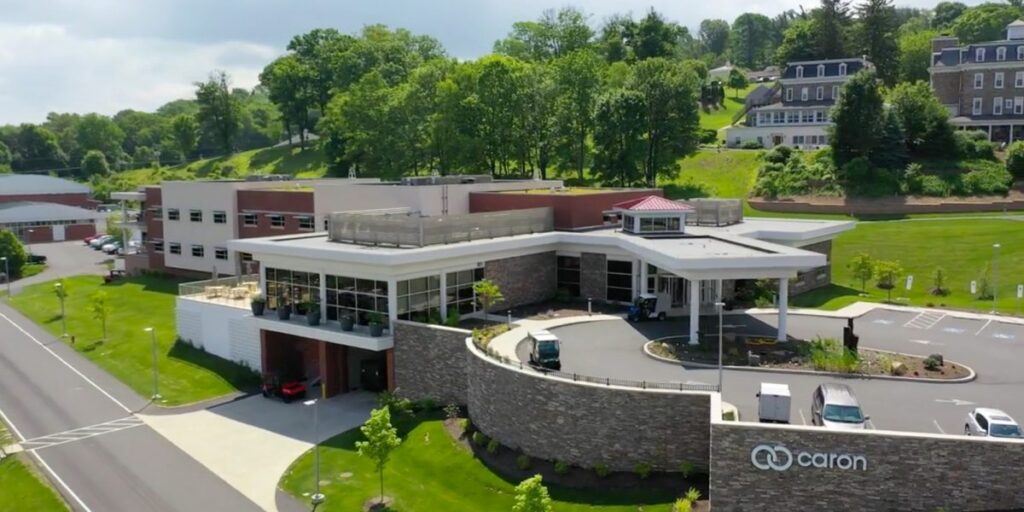
The Caron Treatment Centers offer a range of addiction treatment programs, including inpatient and outpatient care, as well as family education and support services. The center also offers specialized treatment programs for young adults, older adults, and professionals.
4. Sierra Tucson – Arizona

Sierra Tucson is a highly respected rehab center that offers a holistic approach to addiction treatment. The center offers a range of programs, including inpatient and outpatient care, as well as specialty programs for trauma and pain management.
5. Promises Treatment Center – California, Texas, and Massachusetts

Promises Treatment Centers is a leading provider of addiction treatment services in the United States. The center offers a range of programs, including inpatient and outpatient care, as well as specialized programs for professionals and executives.
6. The Ranch – Nunnelly, Tennessee
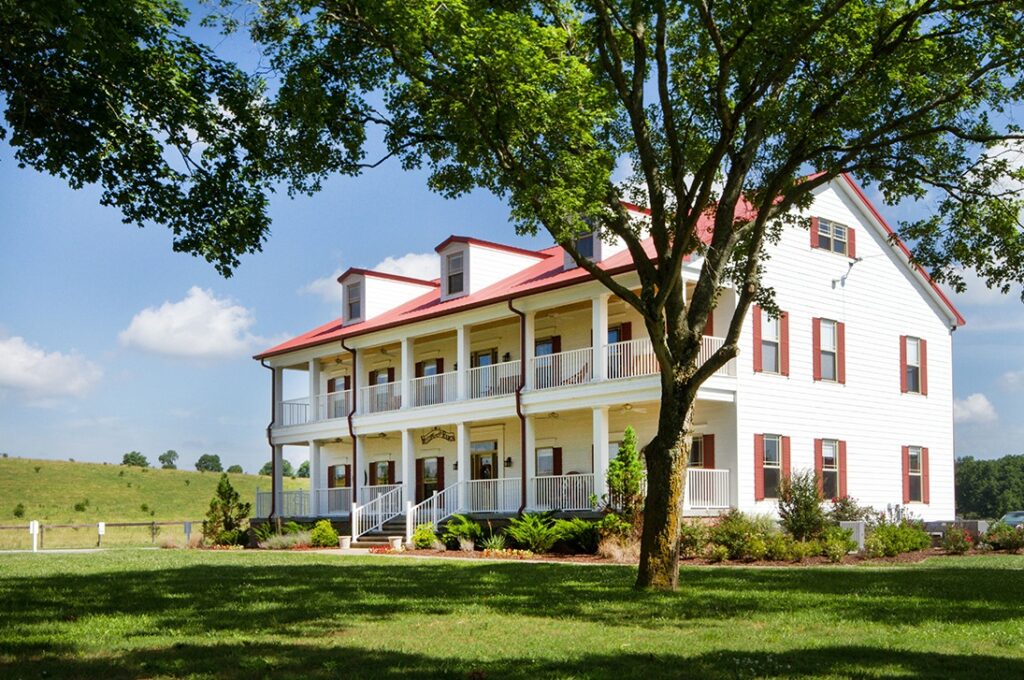
The Ranch is a highly respected rehab center that offers a range of programs, including inpatient and outpatient care, as well as specialty programs for trauma and addiction. The center also offers equine therapy and other alternative therapies as part of its treatment approach.
7. Duffy’s Napa Valley Rehab – Calistoga, California

Duffy’s Napa Valley Rehab is a boutique rehab center that offers a personalized approach to addiction treatment. The center offers a range of programs, including inpatient and outpatient care, as well as specialized programs for professionals and older adults.
8. Timberline Knolls – Lemont, Illinois
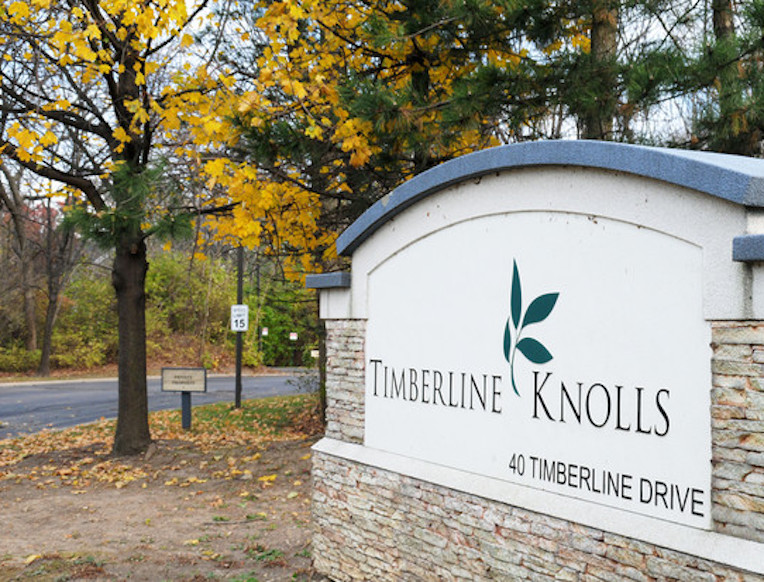
Timberline Knolls is a women-only rehab center that specializes in treating addiction, eating disorders, and other mental health conditions. The center offers a range of programs, including inpatient and outpatient care, as well as continuing care and support services.
9. The Meadows – Wickenburg, Arizona
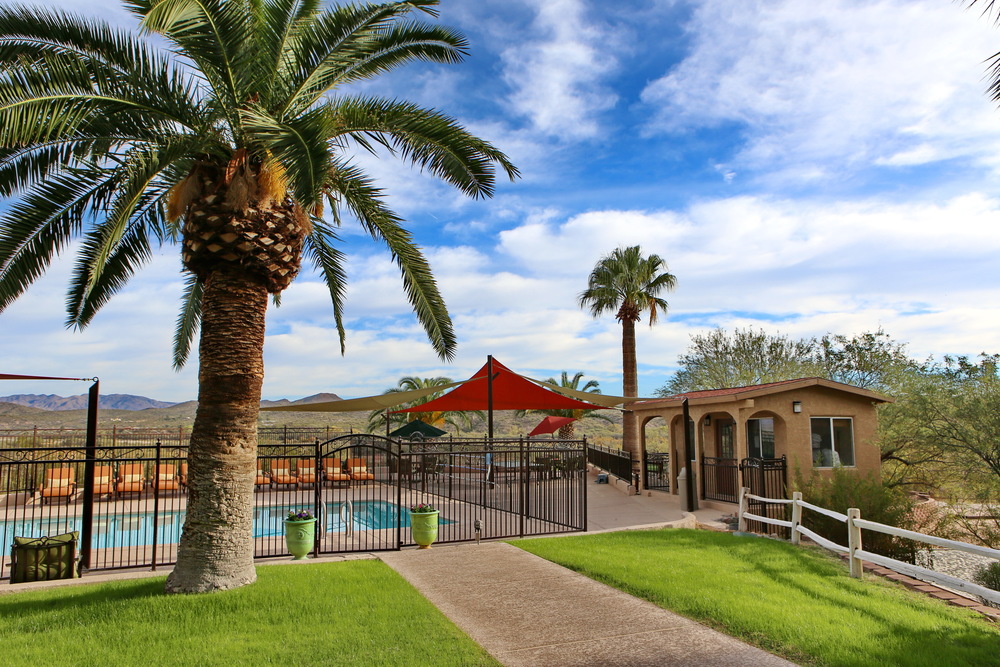
The Meadows is a highly respected rehab center that offers a range of programs, including inpatient and outpatient care, as well as specialty programs for trauma, addiction, and mental health. The center also offers alternative therapies, such as yoga and meditation, as part of its treatment approach.
10. Cirque Lodge – Sundance, Utah
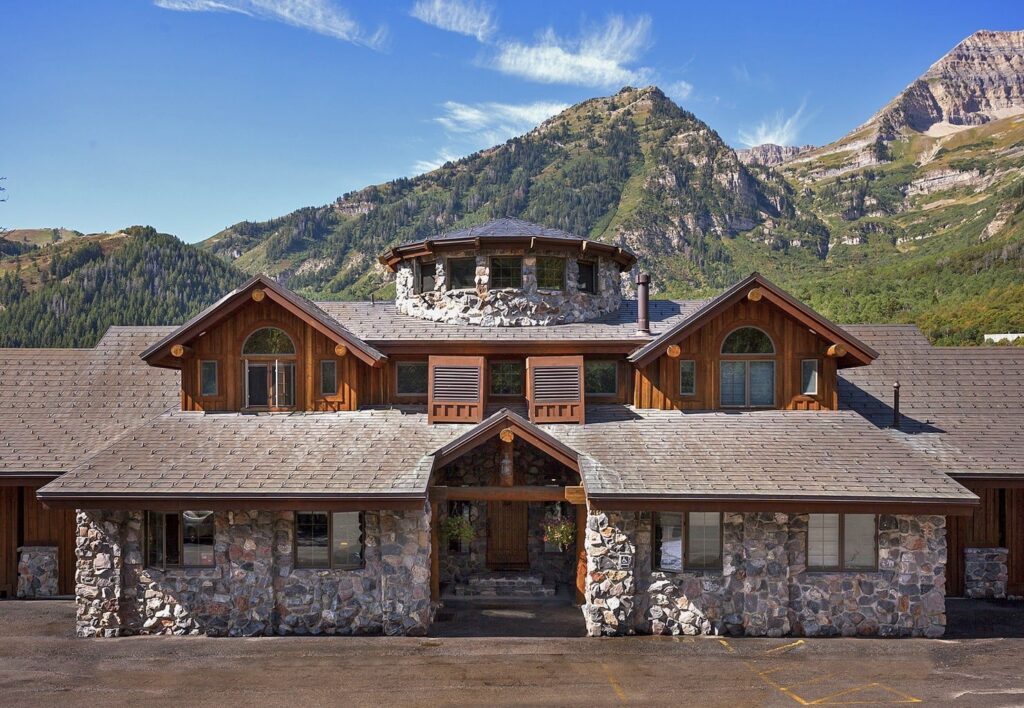
Cirque Lodge is a luxury rehab center that offers a range of programs, including inpatient and outpatient care, as well as specialty programs for addiction and mental health. The center is known for its luxurious accommodations and its personalized approach to treatment.
Who needs rehab?
Drug rehab centers are designed to help individuals who are struggling with substance abuse or addiction. Therefore, anyone who is experiencing problems related to drug or alcohol use may benefit from attending a drug rehab center.
Some common signs that may indicate the need for drug rehab include:
- Loss of control over drug or alcohol use
- Continued drug or alcohol use despite negative consequences
- Withdrawal symptoms when attempting to quit
- Difficulty maintaining responsibilities at work, school, or home due to drug or alcohol use
- Changes in behavior or personality
- Financial problems due to drug or alcohol use
- Legal issues related to drug or alcohol use
If you or someone you know is struggling with drug or alcohol addiction, it may be time to seek help from a drug rehab center. These centers offer a range of services, including detoxification, counseling, therapy, and support groups, to help individuals overcome addiction and achieve long-term recovery.
Things to consider in a drug rehab center
There are several important things to consider when choosing a drug rehab center. Here are some of the most important factors:
- Accreditation and Licensing: Make sure the rehab center is licensed and accredited by the relevant state and/or national organizations.
- Treatment Approach: Check the rehab center’s approach to addiction treatment, including the types of therapy and counseling offered, and the overall philosophy of treatment.
- Staff Qualifications: Look for a rehab center with experienced and qualified staff, including doctors, therapists, counselors, and nurses.
- Location and Facilities: Consider the location and facilities of the rehab center, including the type of environment, available amenities, and overall comfort.
- Length of Treatment: Check the length of the rehab program and whether it is tailored to the needs of each individual patient.
- Success Rates: Look for a rehab center with high success rates and positive patient outcomes.
- Aftercare Support: Consider the type of aftercare support provided by the rehab center, including ongoing counseling and support groups.
- Cost and Insurance: Check the cost of the rehab program and whether it is covered by your insurance. If not, look for affordable options or financial assistance programs.
Overall, it’s important to choose a drug rehab center that fits your specific needs and preferences, and that provides the best chance for a successful recovery.
Frequently Asked Questions on Drug Rehab Centers
1. What is a drug rehab center?
A: A drug rehab center is a facility that provides treatment for individuals struggling with substance abuse and addiction.
2. What types of drug rehab centers are available in the United States?
A: There are several types of drug rehab centers, including inpatient, outpatient, residential, and detoxification centers.
3. What should I look for in a drug rehab center?
A: When choosing a drug rehab center, you should consider the quality of care, the qualifications of the staff, the range of services offered, and the cost of treatment.
4. What types of therapies are used in drug rehab centers?
A: Drug rehab centers may use a variety of therapies, including individual and group counseling, cognitive-behavioral therapy, and medication-assisted treatment.
5. How long does drug rehab treatment typically last?
A: The length of drug rehab treatment can vary depending on the individual’s needs and the severity of their addiction. Treatment may last anywhere from a few weeks to several months.
6. Will my insurance cover drug rehab treatment?
A: Many insurance plans cover at least part of the cost of drug rehab treatment. It’s important to check with your insurance provider to determine your coverage.
7. What happens after I complete drug rehab treatment?
A: After completing drug rehab treatment, many individuals continue to participate in ongoing therapy and support groups to help maintain their recovery.
8. What are the success rates for drug rehab treatment?
A: The success rates for drug rehab treatment vary depending on the individual and the type of treatment they receive. However, many people are able to successfully overcome their addiction and maintain sobriety.
9. How much does drug rehab treatment cost?
A: The cost of drug rehab treatment can vary widely depending on the facility and the type of treatment. It’s important to check with individual facilities to determine their costs and any available financing options.
10. How do I choose the right drug rehab center for me?
A: Choosing the right drug rehab center involves considering your specific needs, preferences, and financial situation. It may be helpful to consult with a healthcare professional or addiction specialist to help make an informed decision.

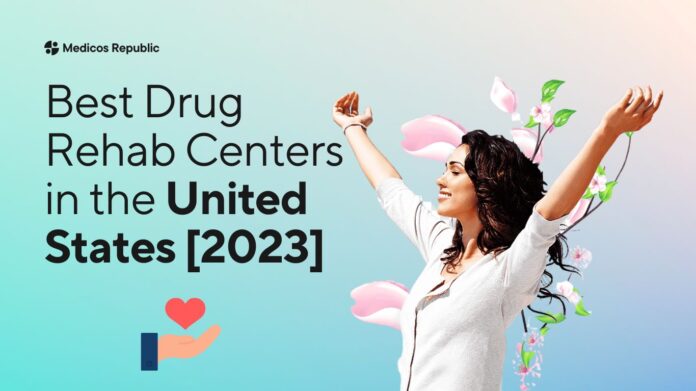


![NCSBN NCLEX Question Bank PDF Free Download [Direct Link] NCSBN NCLEX Question Bank PDF](https://www.medicosrepublic.com/wp-content/uploads/2019/10/NCSBN-NCLEX-Question-Bank-PDF-Free-Download-150x150.jpg)
![Medical Physiology: Principles for Clinical Medicine 5th Edition PDF Free Download [Direct Link]](https://www.medicosrepublic.com/wp-content/uploads/2022/06/Medical-Physiology-Principles-for-Clinical-Medicine-5TH-Edition-PDF-Free-Download-696x365-1-150x150.jpg)
![Step-Up to Obstetrics and Gynecology 1st Edition PDF Free Download [Direct Link] Step-Up to Obstetrics and Gynecology PDF](https://www.medicosrepublic.com/wp-content/uploads/2019/04/Step-Up-to-Obstetrics-and-Gynecology-PDF-150x150.jpg)
![Nursing2023 Drug Handbook PDF Free Download [Direct Link] Nursing2023 Drug Handbook PDF](https://www.medicosrepublic.com/wp-content/uploads/2023/02/Nursing2023-Drug-Handbook-PDF-150x150.jpg)
![Encyclopedia of Counseling 4th Edition PDF Free Download [Direct Link] Encyclopedia of Counseling 4th Edition PDF](https://www.medicosrepublic.com/wp-content/uploads/2023/02/Encyclopedia-of-Counseling-4th-Edition-PDF-Free-1-150x150.jpg)
![Best of Five MCQs for the Endocrinology and Diabetes SCE 1st Edition PDF Free Download [Direct Link] Best of Five MCQs for the Endocrinology and Diabetes SCE 1st Edition PDF](https://www.medicosrepublic.com/wp-content/uploads/2018/12/Best-of-Five-MCQs-for-the-Endocrinology-and-Diabetes-SCE-1st-Edition-PDF-Free-Download-150x150.jpg)
![Airbnb For Dummies PDF Free Download [Direct Link] Airbnb For Dummies PDF](https://www.medicosrepublic.com/wp-content/uploads/2023/04/Airbnb-For-Dummies-PDF-Free-150x150.png)
![Robbins and Cotran Pathologic Basis of Disease 9th Edition PDF Free Download [Direct Link] Robbins and Cotran Pathologic Basis of Disease 9th Edition PDF](https://www.medicosrepublic.com/wp-content/uploads/2022/05/Robbins-and-Cotran-Pathologic-Basis-of-Disease-9th-Edition-PDF-Free-Download-150x150.jpg)
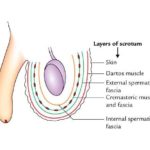
![Nursing The Acutely Ill Adult: Case Book PDF Free Download [Direct Link] Nursing The Acutely Ill Adult: Case Book PDF](https://www.medicosrepublic.com/wp-content/uploads/2018/08/Nursing-The-Acutely-Ill-Adult-Case-Book-PDF-Free-Download-150x150.jpg)
